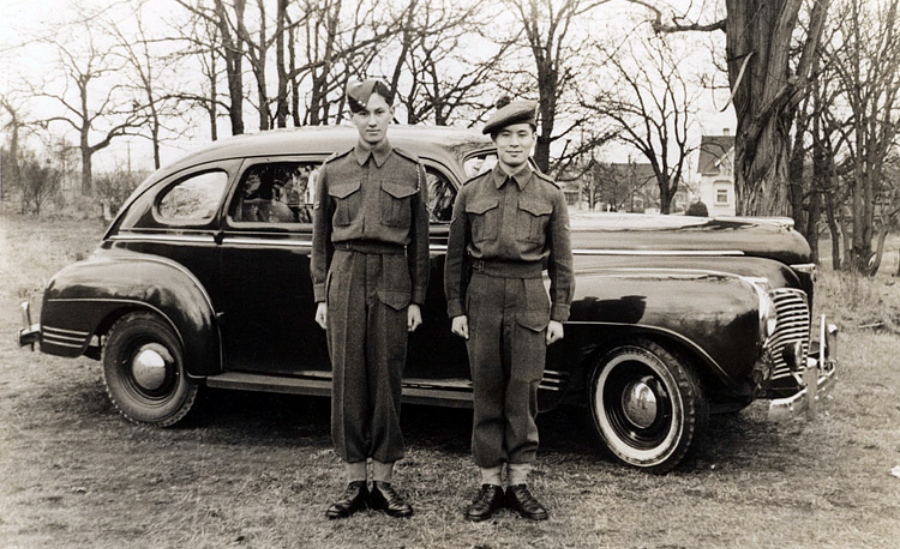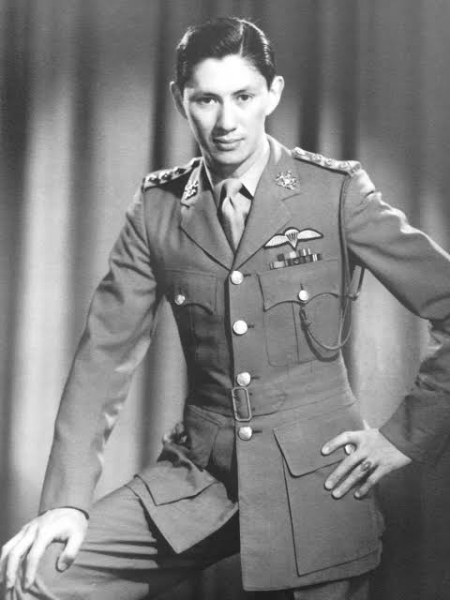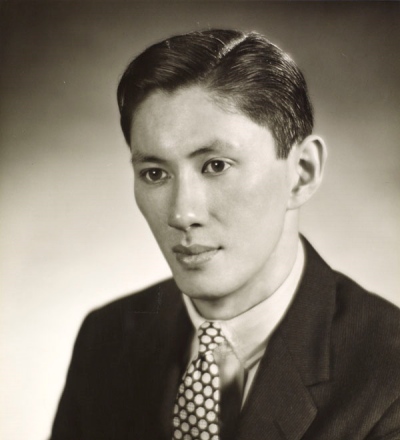
Douglas Jung
“We were prepared to lay ourselves down for nothing. There was no guarantee that the Canadian government was going to give us the full rights of Canadian citizenship. We were taking a gamble.”
– Douglas Jung, CM, OBC, soldier, spy, politician, lawyer, and delegate to the United Nations.
Born February 25, 1924, in Victoria, BC, Douglas Jung wouldn’t officially be recognized as Canadian until 1947. Chinese people faced significant discrimination in Canada – at the time of Jung’s birth they were unable to vote and practice certain professions like law or medicine. In addition, the Chinese Head Tax had been replaced with a total ban of new Chinese immigrants entering Canada. Chinese people were segregated, barred from military service, and required to register for identity cards.
World War Two divided the Chinese community in Canada. Many felt it did not make sense to volunteer to fight for a country that did not want them. Others, like Jung, saw the war as an opportunity to prove Chinese people deserved full rights as Canadians. Jung believed if Chinese Canadians did not volunteer then their demands for citizenship would not be taken seriously by current Canadian citizens.
In 1944, Jung would get the opportunity to serve. The establishment of Force 136 and other changes to enlistment standards gave Chinese Canadians the chance to enlist. Jung was part of Operation Oblivion, a Special Operations Executive (SOE) plan led by the British to send agents of Chinese heritage into Japanese-occupied China to act as spies and saboteurs, and to arm and train Chinese soldiers. He completed special forces training at a secret location on Okanagan Lake in British Columbia. One of the more difficult training requirements for the Chinese recruits was swimming long distances in complete silence while carrying a 50 lbs ruck (i.e., a 23kg backpack). The difficulty arose from the fact that at that time Chinese people were banned from most public pools in British Columbia – the home province of most recruits – and thus most did not know how to swim. During a later parachute training exercise in Australia, Jung was injured, but he remained there as an intelligence instructor until the end of the war. The contributions of Jung and other Chinese Canadians during the war challenged the racist beliefs held by many Canadians and was crucial to enfranchising Chinese Canadians by 1947.
After the war, Jung enrolled in the University of British Columbia, graduating in 1953 with a Bachelor of Arts and a Bachelor of Laws. He was called to the bar in BC in 1954 and established an immigration practice. He became the first Chinese Canadian lawyer to appear before the BC Court of Appeal only a year later, in 1955.
Jung became the first Chinese Canadian to run for a seat in any Canadian legislature in 1956, when he ran for the Vancouver-Centre riding in a provincial by-election. Although he lost the election, the strong showing for his campaign prompted him to run in the 1957 federal election. Jung won an upset victory over the heavily favoured Liberal incumbent, Ralph Campney (a sitting Cabinet minister), which earned him the nickname “The Giant Killer.” He was the first Chinese Canadian Member of Parliament, where he served in Prime Minister John Diefenbaker’s minority Progressive Conservative government.
Diefenbaker appointed Jung as the Canadian representative to the United Nations. On his first day at the UN headquarters in New York, Jung was told to leave after taking his seat. The security guard told him the spot was reserved for the official representative of Canada, leading to Jung’s most famous quote: “I am the Canadian Delegate.”
Jung left a strong political legacy that saw him spearheading the National Productivity Council (now the Canadian Economic Council), fiercely advocating for immigrants and members of the Chinese community, and consistently promoting regulatory changes that would benefit old age pensioners and students. Following his electoral defeat in 1962, Jung continued to support immigrants through his law practice. He was made a member of the Order of Canada in 1990 and the Order of British Columbia in 1997. Douglas Jung passed away on January 4, 2002, in Vancouver.
Additional Information & Further Reading:
I am the Canadian Delegate (abridged) – A documentary about Jung.
An interview by Jung as part of the Heroes Remember series.
Chinese Canadian Military Museum Society (CCMMS) – An organization that aims to “collect, preserve, document and commemorate the role of Chinese Canadians in service to Canada’s military with a focus on the role these “unwanted soldiers” played in the community’s efforts to achieve full equal rights in Canada.”
Main: Jung and another soldier from Force 136 during the war. (Credit: Chinese Canadian Military Museum Society)
Sources:
Butts, Edward. 2019. “Douglas Jung.” The Canadian Encyclopedia. Accessed August 2023. https://www.thecanadianencyclopedia.ca/en/article/douglas-jung.
Chinese Canadian Military Museum Society. 2017. “Douglas Jung.” Veteran Stories. Accessed August 2023. https://www.ccmms.ca/veteran-stories/army/douglas-jung/.



